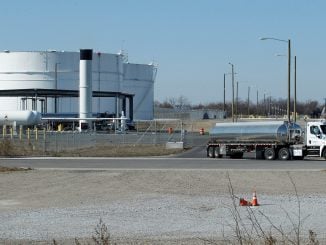RALEIGH — North Carolina is in a stronger financial position than budget analysts anticipated last year at the start of the pandemic, according to a report from a group of economists.
The analysis from the Office of State Budget and Management and the General Assembly’s Fiscal Research Division project the state will receive $4.1 billion more in revenue this fiscal year than expected. The change represents a nearly 18% increase than they had forecast in May 2020.
The extra revenue primarily came from higher income and sales tax collections and strong business tax collections.
The coronavirus pandemic created much uncertainty at the time the economists issued their report last year, prompting them to predict the state would be in a weaker economic position. The state has not seen as serious of a recession as expected.
“The combined impact of Federal Stimulus payments and the K-shaped recovery meant that Personal Income withholding and Sales tax collections were surprisingly strong compared to what we expected back in May 2020,” the economists wrote.
Republican House Speaker Tim Moore attributed good economic news to the state’s tax policies.
“People are paying lower taxes in North Carolina and benefitting from a pro-growth approach to the public and private sector,” Moore said in a statement.
Moore’s office noted that the state’s Republican-led General Assembly reformed its tax code over the last decade to levy a lower sales, income, and corporate tax rate on the workforce and economy. Moore pointed to North Carolina’s unanimous AAA credit rating and its #1 Best State for Business ranking by Forbes magazine as further evidence of success within the current economic strategy. Much of this continued growth and resilience, officials say, can be attributed to the design of the state’s tax structure, which ensures that the majority of taxes are collected from middle and upper income households and large businesses.
The consensus forecast released last week says current year revenue is well ahead of expectations largely because “business tax collections…are all expected to post robust, positive year-over-year growth.”
General Fund revenue is expected to increase by $873 million and reach $28.5 billion by the end of FY 2022-23, according to the forecast. Personal income taxes are also estimated to finish much better than expected, with positive year-over-year growth.
“People are paying lower taxes in North Carolina and benefitting from a pro-growth approach to the public and private sector.”
N.C. House Speaker Tim Moore
The report concluded that economic activity in North Carolina recovered much faster than normally expected coming out of a recession.
But the recovery has not spread equally across the workforce. The report also noted that a chunk of the state’s workforce will continue to struggle if transmission of the virus remains prevalent.
“Despite solid revenue growth, a small segment of the workforce will remain un- or underemployed as long as COVID-19 is prevalent, and this will keep both the economy and revenue below their full potential rate of growth,” the report said.
Workers in the service industry, particularly in retail and leisure and hospitality, are seeing the most economic damage, as many small businesses have already folded or are struggling to hang on, according to the report.
COVID relief bills passed by Congress have allowed residents to receive direct assistance. The stimulus bills have also given the state the ability to disburse billions of dollars to help get back on track financially. The economists are basing their updated estimates, in part, on the assumption that another round of stimulus will be enacted and that the spread of the virus will continue to decrease as more people get vaccinated.
Democratic Gov. Roy Cooper acknowledged residents have not equally benefitted from the recovery and that many continue to struggle. Earlier this week, he signed a COVID relief bill from state lawmakers that uses federal funds to help reopen schools, expedite the vaccine distribution process and assist North Carolinians unable to pay their rent.
“While state revenue is strong, people across our state are still hurting and we must use these funds to help them recover from this pandemic,” Cooper said in a statement. “We must bring real help to our schools, to small businesses and to people who have lost income and lack health care to ensure our state and entire economy emerge from this pandemic stronger than ever.”
The Associated Press contributed to this report.


